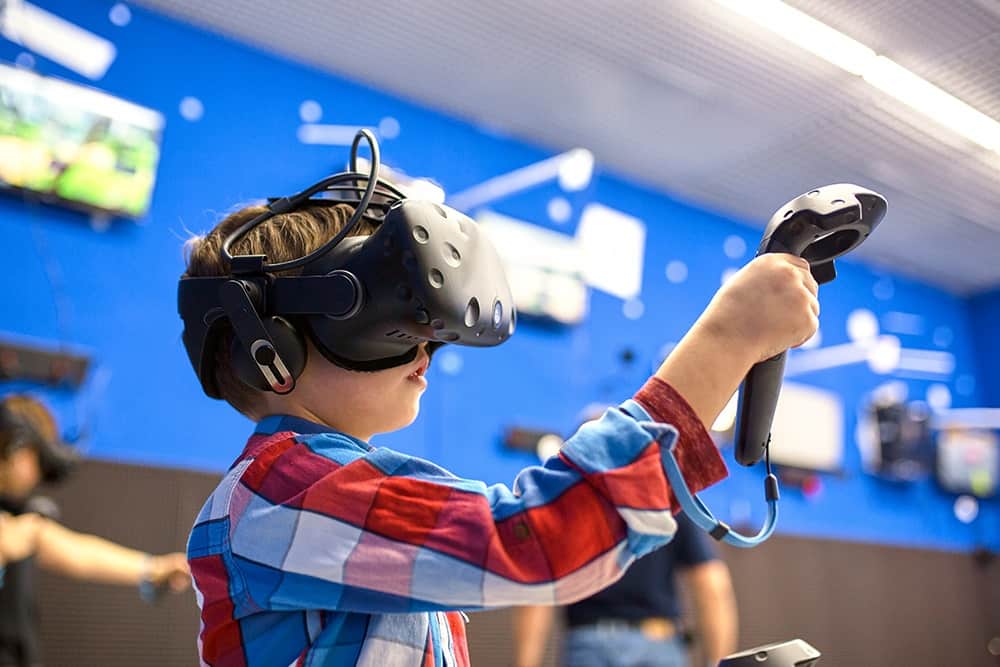
Stay tuned for the announcement about our MRI VR Game!
Stay tuned for the announcement about our MRI VR Game! Category: News More updates

Virtual Reality (VR) has shown promising potential for pediatric therapy due to its ability to create immersive and interactive environments. Some of the benefits of using VR for pediatric therapy include:
1. Engagement: VR environments are highly engaging, especially for children who may find traditional therapy methods tedious or boring. The immersive nature of VR can capture their attention and keep them motivated throughout the therapy session.
2. Customization: VR therapy platforms can be tailored to meet the specific needs and preferences of each child. Therapists can adjust the difficulty levels, scenarios, and activities within the virtual environment to cater to the individual requirements of the child’s therapy goals.
3. Safe Exposure: VR allows children to safely experience and confront fears or anxieties in a controlled virtual environment. For example, children with phobias or anxiety disorders can gradually expose themselves to feared stimuli, such as heights or social situations, in a safe and supportive setting.
4. Enhanced Learning: VR simulations can facilitate experiential learning by providing interactive scenarios where children can practice skills and receive immediate feedback. This can be particularly beneficial for children with developmental disorders or learning disabilities.
5. Increased Motivation: The immersive and interactive nature of VR therapy can increase children’s motivation to participate in therapy sessions. Achieving goals or completing tasks within the virtual environment can provide a sense of accomplishment and boost self-esteem.
6. Distraction from Pain: VR has been shown to be effective in distracting children from pain during medical procedures or treatments. By immersing children in a virtual environment, VR can help reduce their perception of pain and discomfort, making medical interventions less distressing.
Overall, VR has the potential to enhance the effectiveness and accessibility of pediatric therapy by providing engaging, customizable, and immersive experiences that address a wide range of therapeutic goals and interventions.

Stay tuned for the announcement about our MRI VR Game! Category: News More updates

What is next for VR? Category: News The future of VR (Virtual Reality) holds several exciting possibilities and potential advancements: 1. Improved Hardware: There will